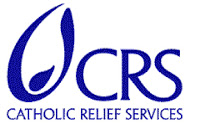Dec 2 SOUTH SUDAN: CRS rehabilitates 12 boreholes to solve water scarcity in Jonglei State.

By AMECEA Online News Correspondent

Catholic Relief Services in collaboration with USAID have identified and repaired 12 boreholes which were broken down and disused for many years in the Jonglei State.
Information received from The Regional Director of the Catholic Relief Services (CRS) Mr. David Orth-More, the activities is considered as one of the success stories in the area. Working in collaboration with Jonglei Food Program, an initiative supported by the USAID, the project has engaged in several interventions including this Water project.
The local chief mobilized youths to provide labor for carrying pipes and other necessary items needed for repair. JFSP also facilitated the formation of water point user committees (WPUC) and provided them with a starter kit for borehole repair, including some essential tools, and commonly used spare parts. JFSP also provided management training for the WPUC members on gathering fees from users to fund maintenance and sustain the water point.
In reality, People living in the Greater Pibor Administrative Area (GPAA) have had very little access to water services for as long as most of them can remember. The area is remote, even within Greater Pibor, which was itself under-developed for decades because of access constraints. The area’s remoteness had made it difficult for Government or NGOs to provide services.
Isolation was compounded by the insurgency and conflict in the area starting in 2011 which destroyed the limited infrastructure and caused community displacement and humanitarian distress. Since the peace agreement of 2014 which set up the GPAA, the displaced population has been returning to rebuild homes and re-establish lives. The population, estimated in 2008 as being 72,000, is scattered across a very large land area, close to the border with Ethiopia. The locality is semi-arid and for much of the year provides few natural water sources for livestock and people.
Women and girls carry most of the burden of finding and fetching water for household and livestock. Nyacho Kuir Lokozil, a grandmother, explains that the first borehole in Likuangole was not installed until 2006 and then broke down a year later. The only naturally occurring water source for the community was several kilometres away, a seasonal stream, also used by livestock, which dries up for part of each year. “We faced difficulties during dry season when everybody went down to the same river.”
We treated the water by mixing it with ash in a pot and decanting it after some hours for drinking and cooking. This water was not safe, it was still dirty, but we had no other choice. This is the life we endured all those years”, explained Nyacho in her village of Manyagolo, west of Likuangole town. Nyacho said she had lost count of the number of children in her village who had died of diarrhoea.


